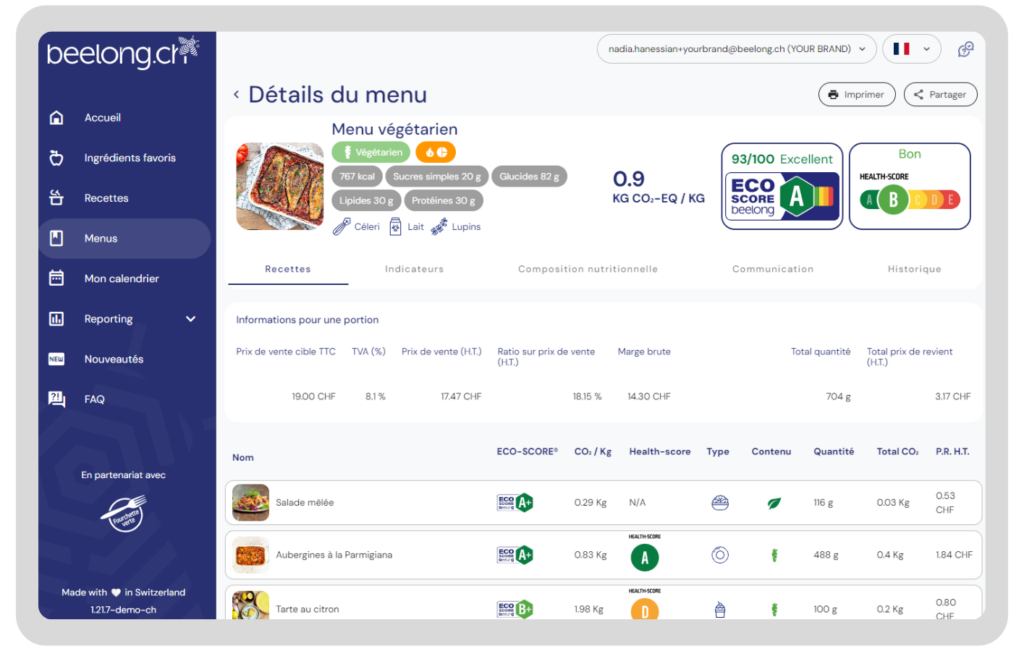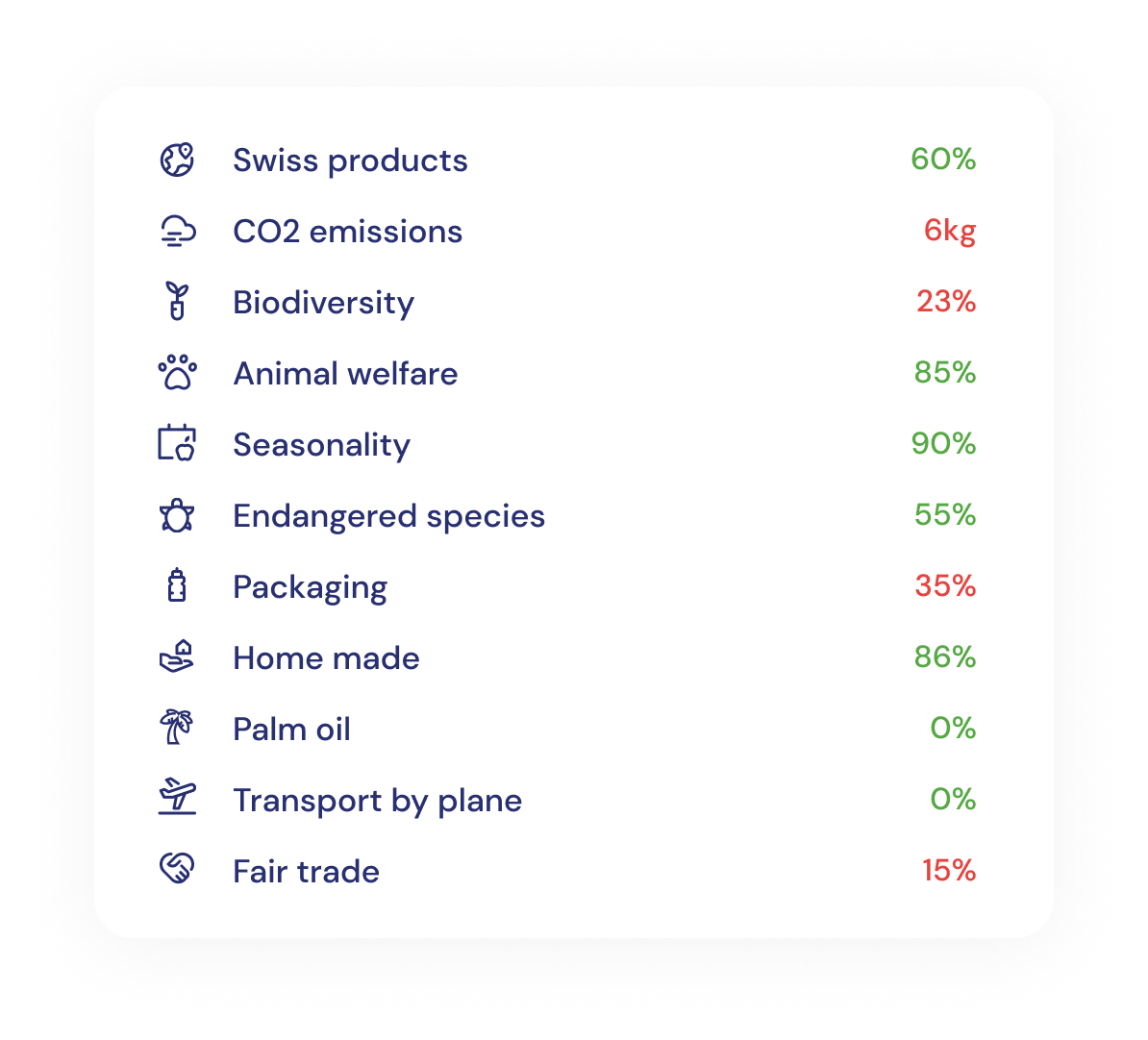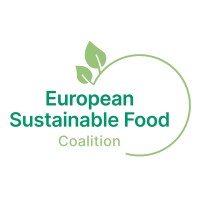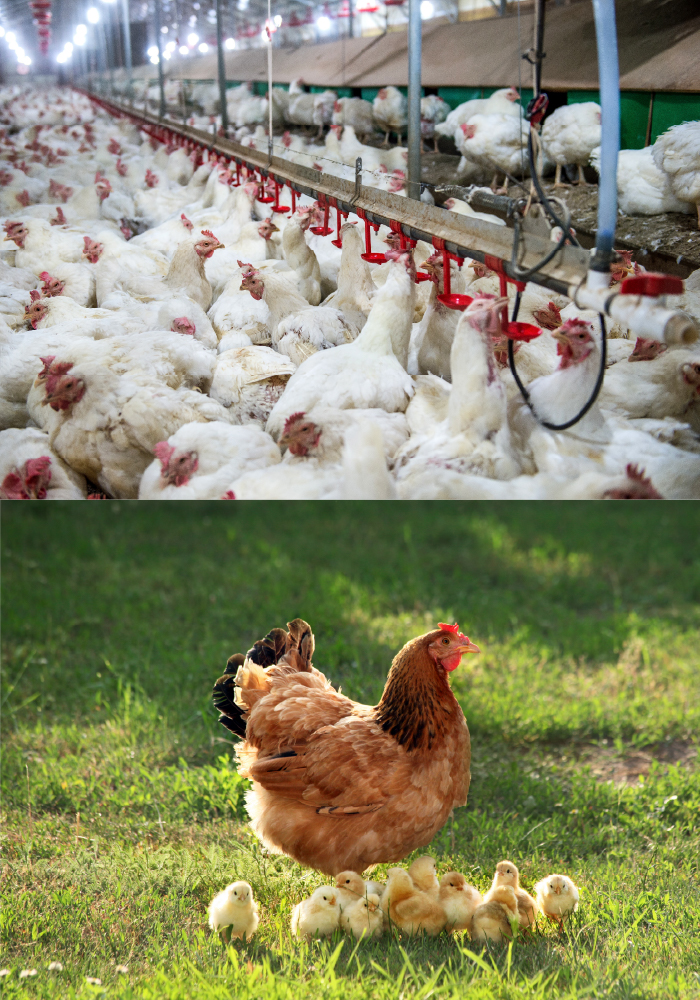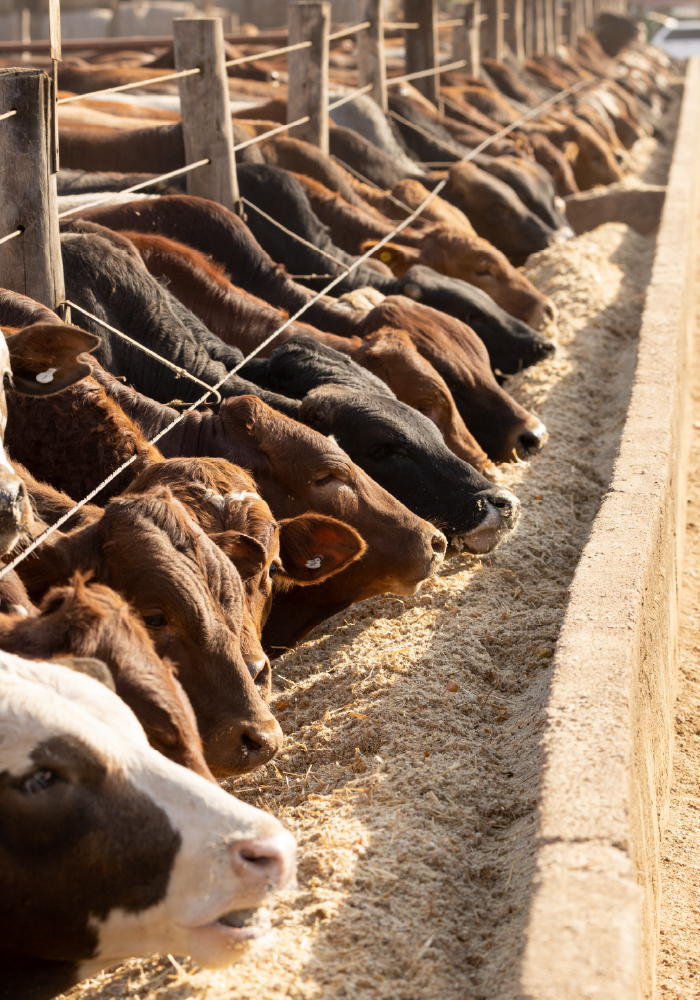Energy intake
ECO-SCORE® by Beelong relates the environmental impact of food products to their energy (kcal) rather than their weight (kg). Indeed, the environmental impact of a food product, in particular its carbon footprint, is most often tied to its weight. However, this does not allow for a clear comparison of foods based on their primary function: feeding the population. relates the environmental impact of food products to their energy (kcal) rather than their weight (kg). Indeed, the environmental impact of a food product, in particular its carbon footprint, is most often tied to its weight. However, this does not allow for a clear comparison of foods based on their primary function: feeding the population.
Une approche par kilocalories permet de :
- Make relevant comparisons between different product categories
- Align our recommendations with the Food and Agriculture Organization of the United Nations (FAO) definition of food security
ECO-SCORE® by Beelong is intended to guide the consumption of food products, the recommendations should enable the consumer to eat in an eco-responsible way whilst still eating enough. However, not all foods have the same energy content. In the food industry, the energy intake and the energy needed by the body to maintain its functions is always expressed in “calories”, and measured in kilocalories (kcal).
An eco-friendly diet should go hand in hand with meeting one’s energy needs. Although energy needs do depend on age, gender, activity and physical condition, on average everyone needs approximately 2,000 kcal/day (OBSAN, 2020). Thus, for the world’s population to eat sustainably without going hungry, these 2,000 kcal/day should be as eco-friendly as possible. In other words, ECO-SCORE® by Beelong encourages the consumption of as many “eco-friendly calories” as possible.
For instance, if we replace 100 g of chicken (163 kcal) with 100 g of tomatoes (21 kcal), we would have to eat 8 times more tomatoes, i.e. 800 g, to achieve the same energy intake. This would multiply by 8 the environmental impact of tomatoes, compared to their energy intake.
Weighting the environmental impact of a product by its energy intake instead of its weight can thus reduce certain biases when comparing products from different categories. Therefore, ECO-SCORE® by Beelong makes it possible to tie environmental performance to food security and sufficiency.
Expressing the environmental impact of food per unit of weight (kg) or per unit of energy intake (kcal) has an influence on the order of magnitude of the various product categories. For instance, the environmental impact of high-calorie products (cereals, nuts, oils, butter, etc.) ends up being slightly corrected compared to the environmental impact of low-calorie products (salad, tomatoes, cucumber, etc.).



